Here are some common legal documents that a travel agency or tour operator company may need:
Business Registration Documents:
Certificate of Incorporation: This document proves the legal existence of your company.
Business License: A license to operate legally in your jurisdiction.
Tax Identification Number (TIN): Required for tax purposes.
Terms and Conditions:
Travel Terms and Conditions: Outlines the terms and conditions for customers booking tours or travel packages.
Cancellation and Refund Policy: Clearly states the rules for canceling bookings and obtaining refunds.
Privacy Policy:
Privacy Policy: Describes how customer data is collected, used, and protected.
Booking Agreement:
Booking Agreement: A contract between the company and the customer specifying the details of the travel package, payment terms, and responsibilities.
Liability Waiver:
Liability Waiver: Protects the company from liability for injuries or accidents during travel.
Insurance Documents:
Insurance Policies: Details of insurance coverage for your company, employees, and customers.
Indemnity Agreement: A legal document outlining the responsibilities of each party in case of an accident or loss during travel.
Supplier Contracts:
Contracts with Hotels, Airlines, and Tour Operators: Agreements with suppliers detailing terms, commissions, and responsibilities.
Employee Contracts:
Employment Contracts: Legal agreements with your employees outlining their roles, compensation, and responsibilities.
Non-Disclosure Agreement (NDA): Protects sensitive business information.
Intellectual Property Documents:
Trademark Registration: If you have a unique brand or logo.
Copyright Notice: Protects your website content and promotional materials.
Financial Documents:
Financial Statements: Yearly financial reports.
Invoices and Receipts: For billing clients and keeping track of payments.
Payment Gateway Agreements: If you accept payments online.
Dispute Resolution Documents:
Arbitration Agreement: Specifies the process for resolving disputes.
Small Claims Court Agreement: Outlines the jurisdiction for legal disputes.
Health and Safety Documents:
Health and Safety Guidelines: Ensures compliance with safety regulations during travel.
Marketing and Advertising Compliance:
Advertising Standards Compliance: Ensures that your marketing materials comply with legal regulations.
Travel Insurance Information:
Travel Insurance Information: Inform customers about the importance of travel insurance and provide options for purchasing it.
Emergency Contact and Contingency Plans:
Emergency Contact Information: For customers during their travel.
Contingency Plans: How the company responds to unexpected events like natural disasters or political unrest.
Please note that the specific legal requirements may vary by jurisdiction, and it’s essential to consult with legal counsel or experts in your region to ensure that your documents comply with local laws and regulations. Additionally, these documents may need to be adapted to your company’s specific circumstances and business model.


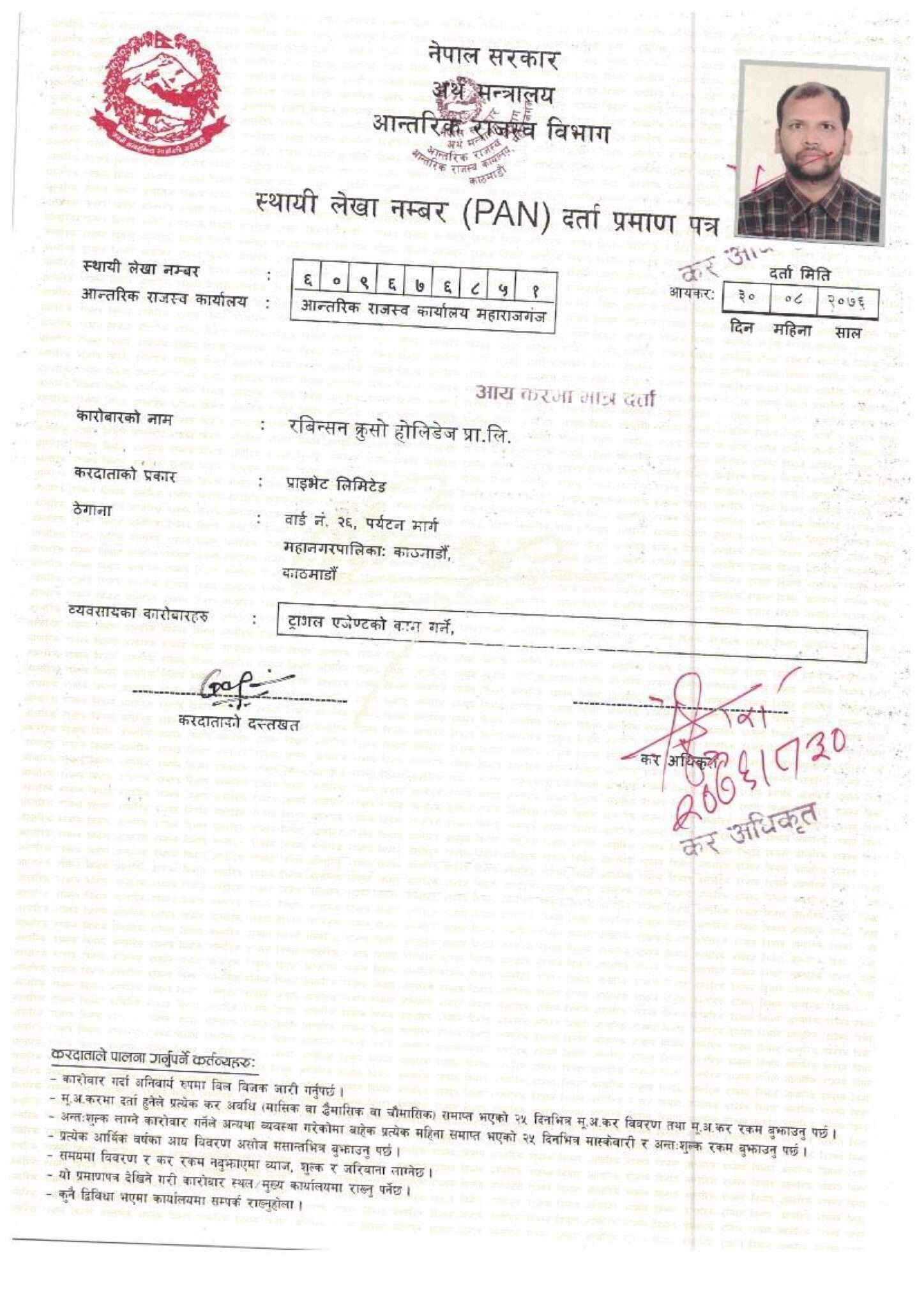 PAN/VAT
PAN/VAT
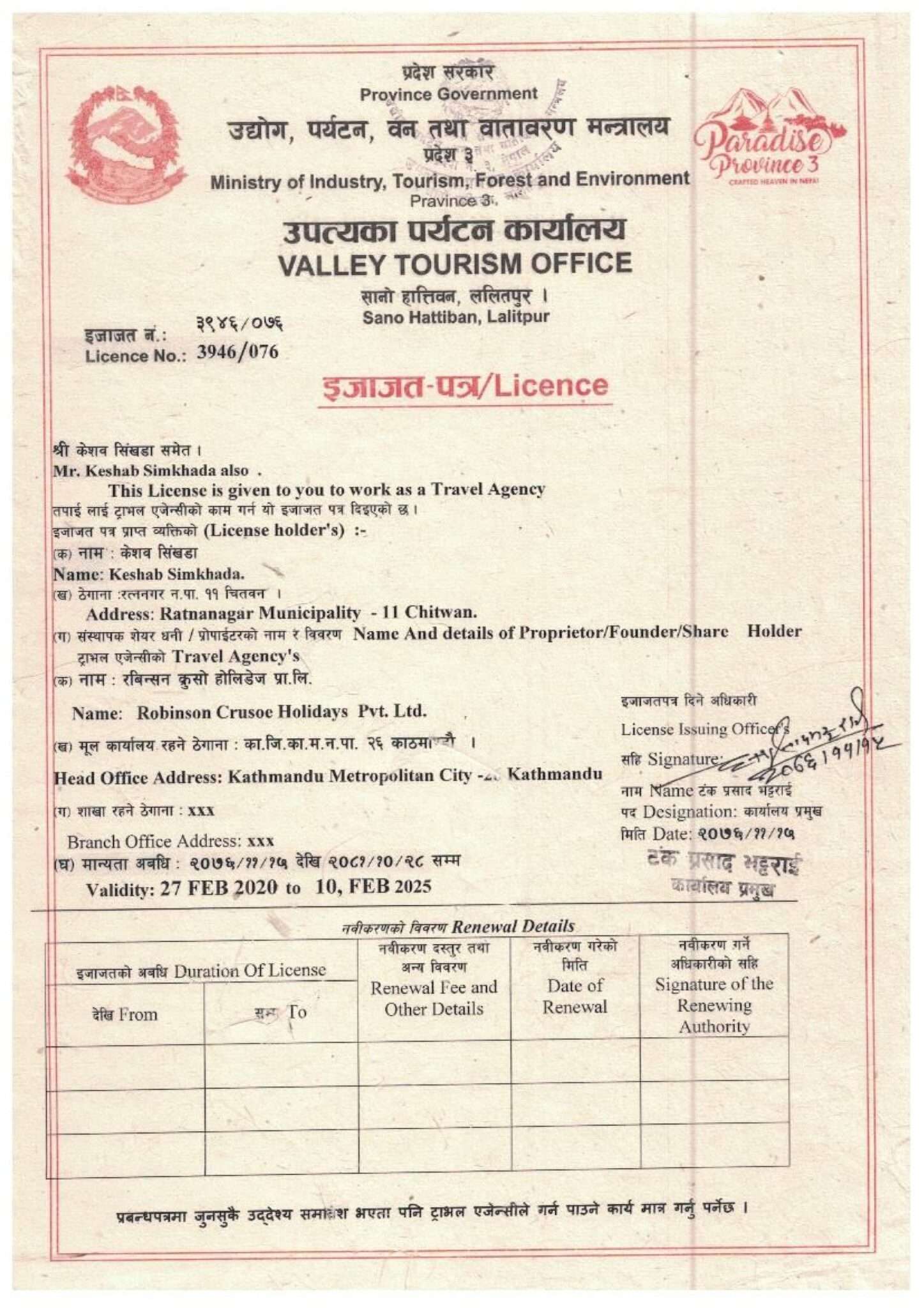 Tourism Office
Tourism Office
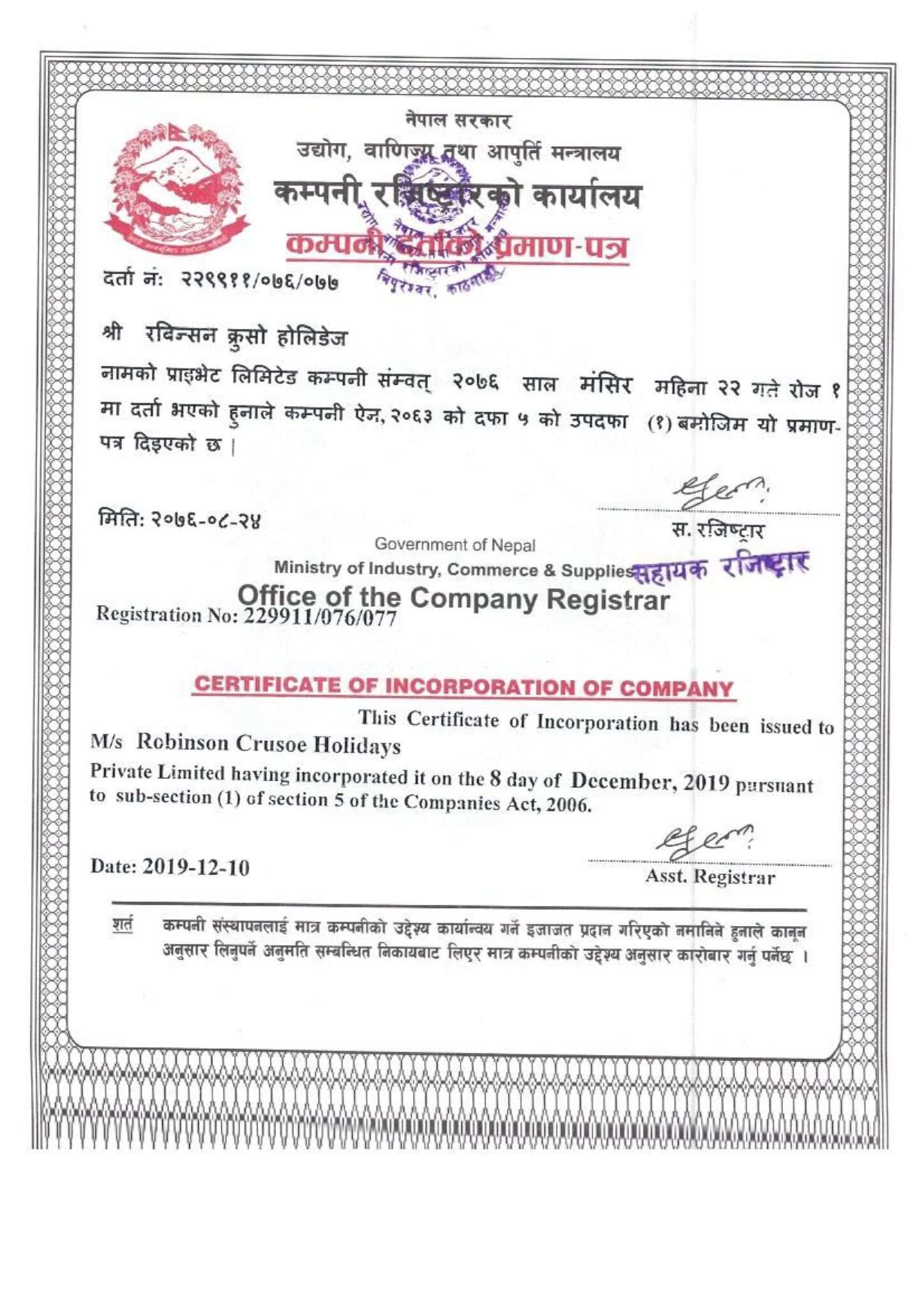 Company Register
Company Register
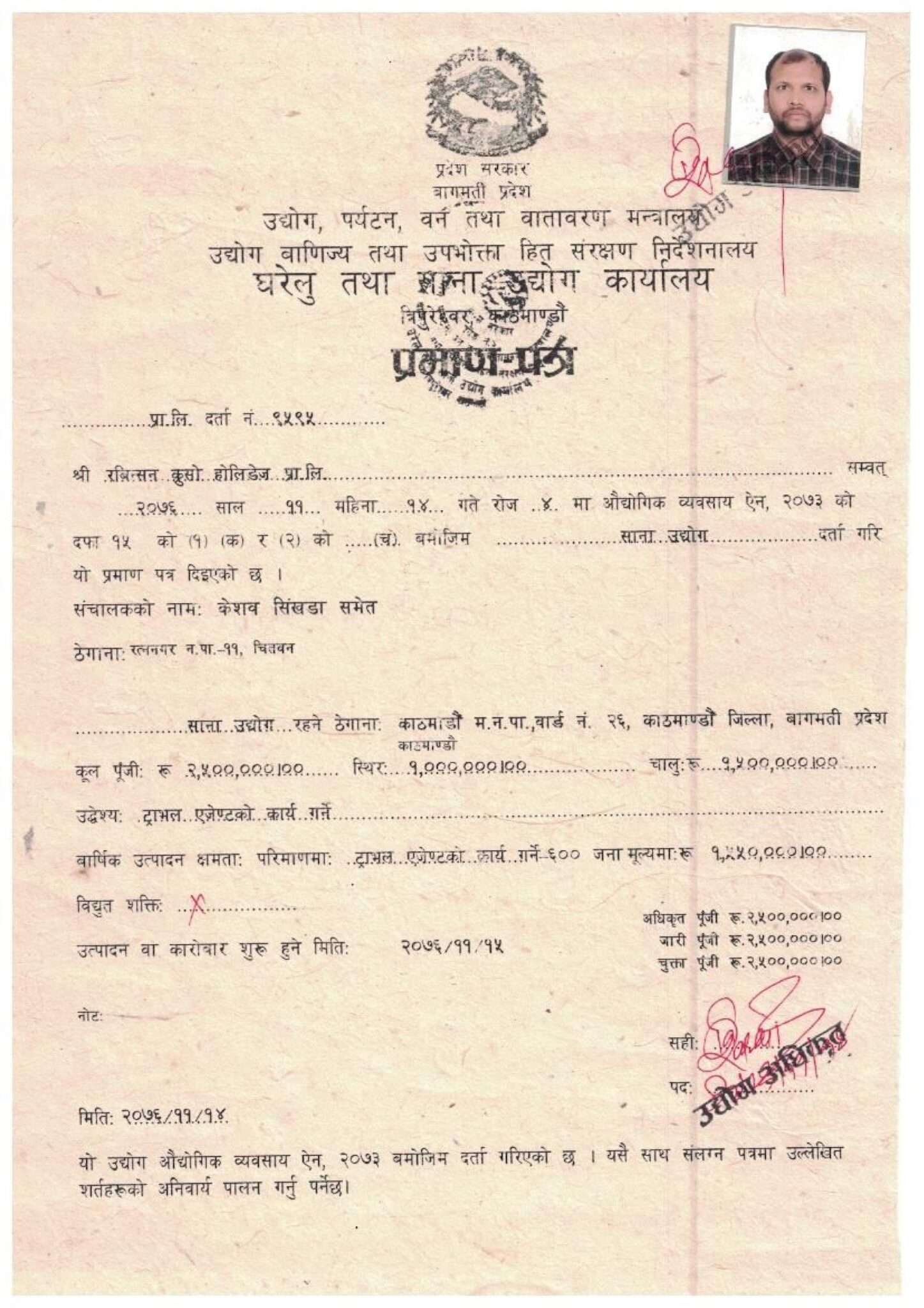 Gharelu/Cottage Industry
Gharelu/Cottage Industry
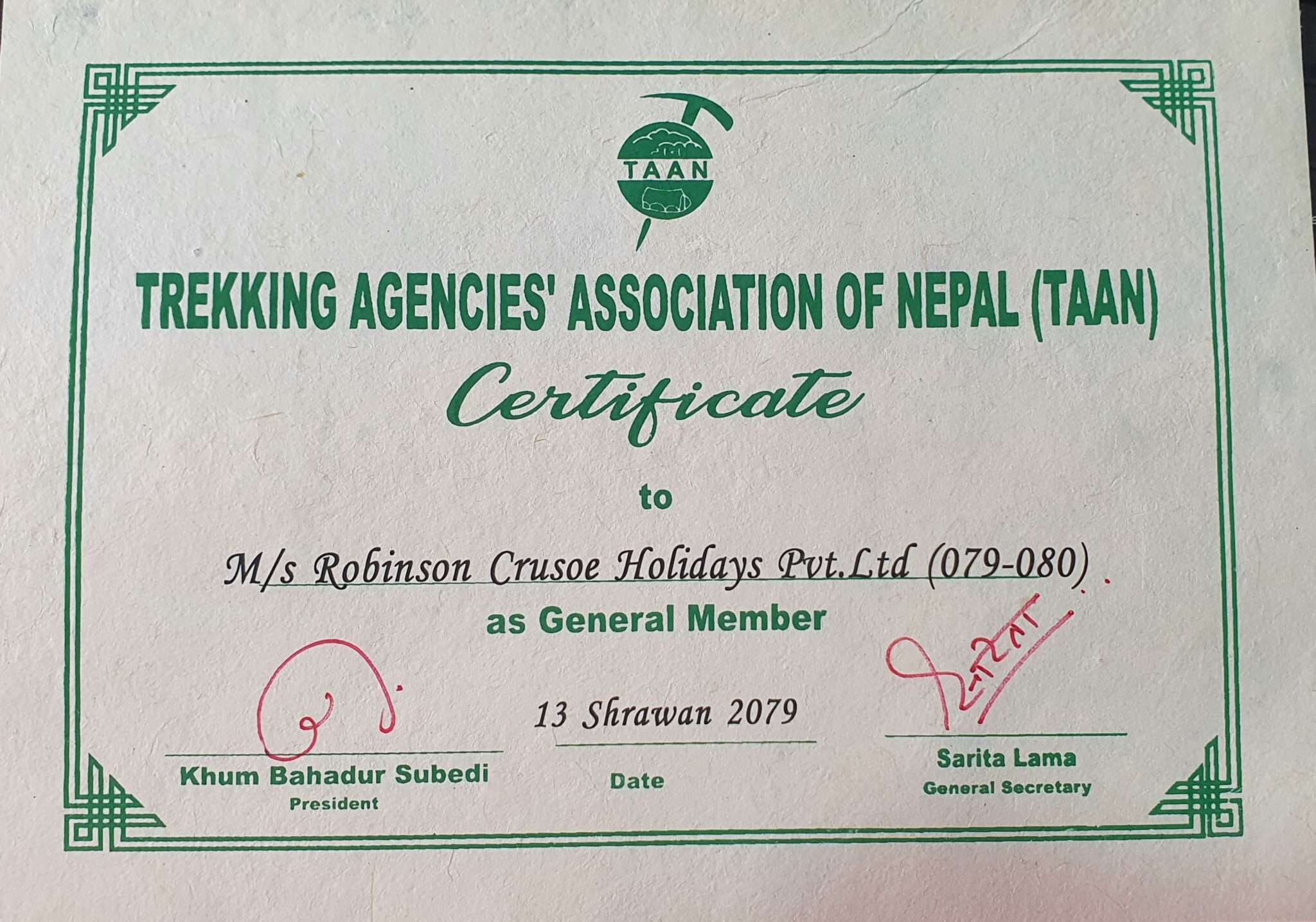 TAAN
TAAN